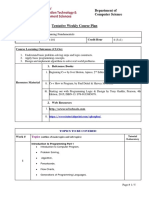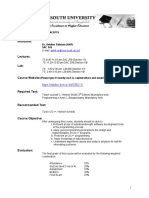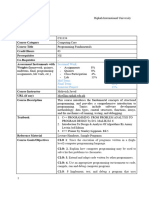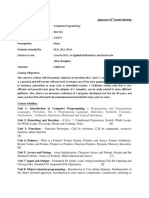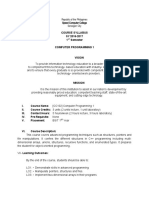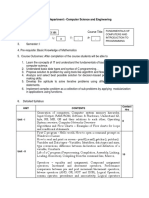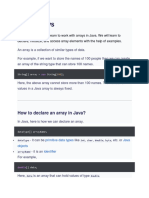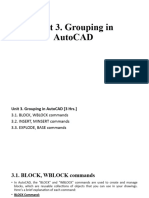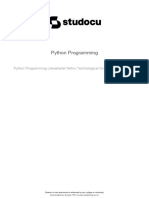0% found this document useful (0 votes)
28 views4 pagesProgramming Fundamentals CC-112
The document outlines the course CC-112: Programming Fundamentals, detailing its objectives, syllabus, assessment criteria, and instructor information. It covers fundamental programming concepts using C++ and C languages, including flowcharts, data types, control structures, functions, and file processing. The course is designed for students in Software Engineering, Computer Science, and Information Technology programs, with no prerequisites required.
Uploaded by
AliCopyright
© © All Rights Reserved
We take content rights seriously. If you suspect this is your content, claim it here.
Available Formats
Download as PDF, TXT or read online on Scribd
0% found this document useful (0 votes)
28 views4 pagesProgramming Fundamentals CC-112
The document outlines the course CC-112: Programming Fundamentals, detailing its objectives, syllabus, assessment criteria, and instructor information. It covers fundamental programming concepts using C++ and C languages, including flowcharts, data types, control structures, functions, and file processing. The course is designed for students in Software Engineering, Computer Science, and Information Technology programs, with no prerequisites required.
Uploaded by
AliCopyright
© © All Rights Reserved
We take content rights seriously. If you suspect this is your content, claim it here.
Available Formats
Download as PDF, TXT or read online on Scribd
/ 4









